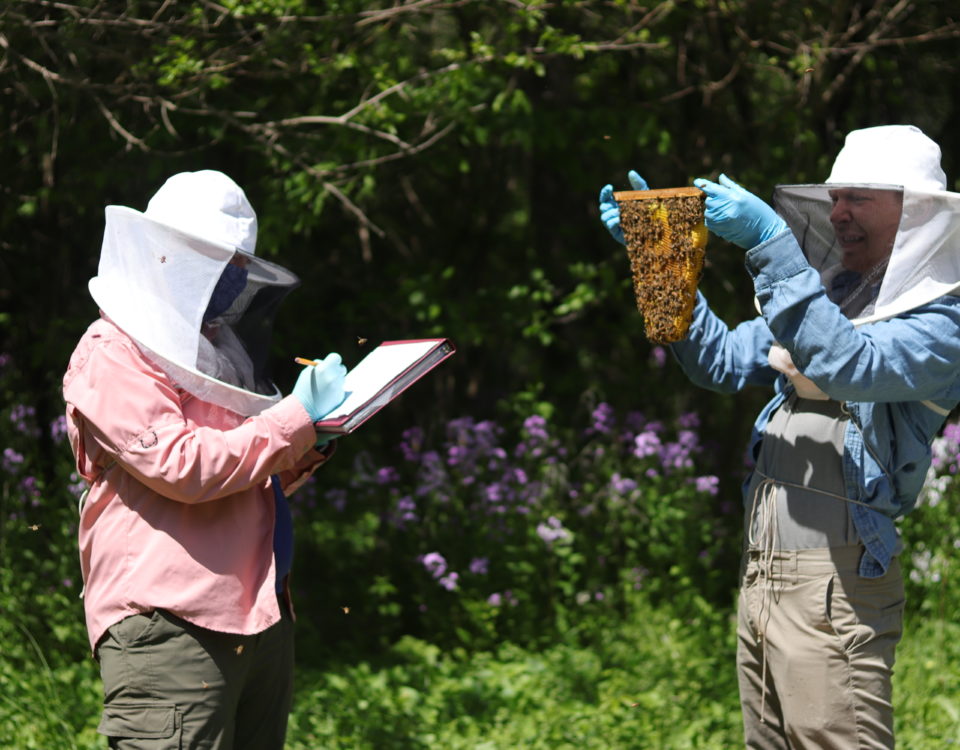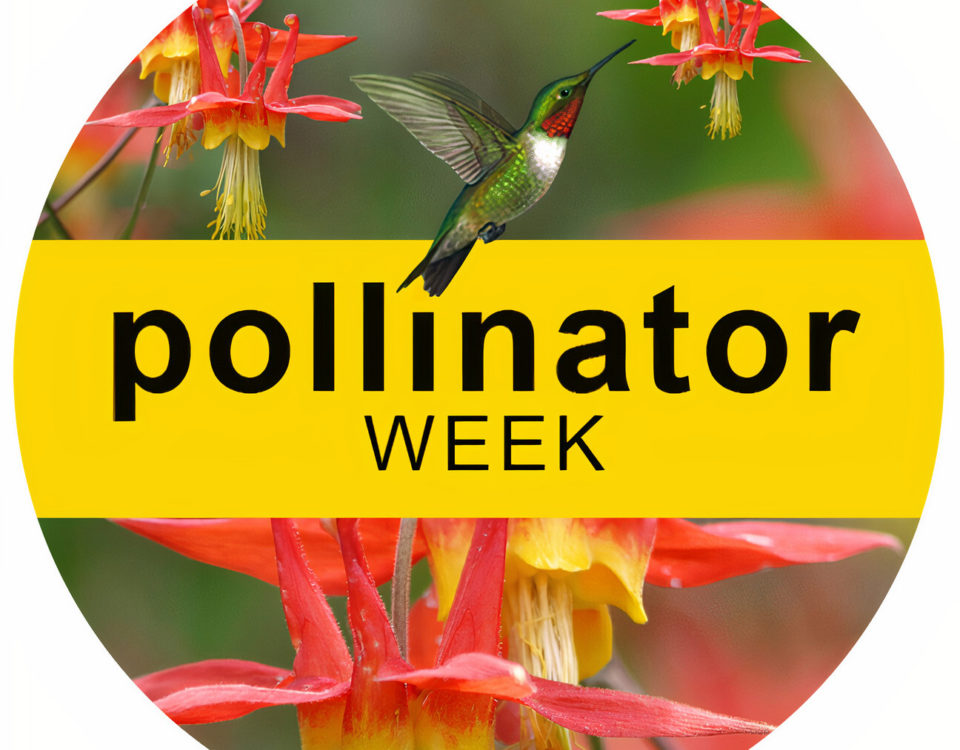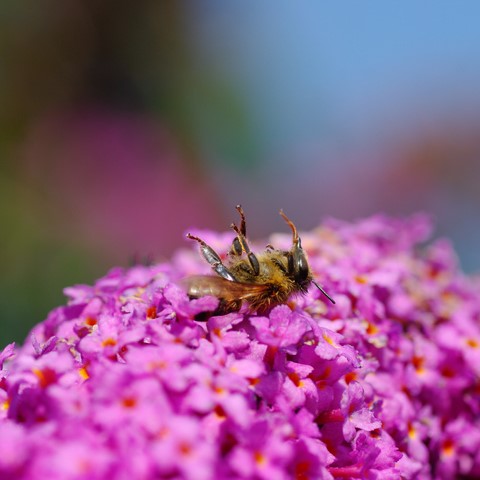- All-In-One Beekeeping for the Bees
- +1-608-728-8233
- info@beepods.com
Not-So-Sweet Spring: How Pandemic-Related Restrictions Have Affected Beekeepers

Bee Bob sells his honey at the Fresno Vineyard Farmers Market.
There are so many lessons to be learned from the pandemic, and it’s not even over yet. One lesson we can teach our students has to do with the global economy. As COVID spreads across the globe, it doesn’t just affect individual countries. Pandemic-related restrictions in one country affect people in many other countries. We can see this just by looking at the stressful spring experienced by global beekeepers.

Bee Bob sells his honey at the Fresno Vineyard Farmers Market. Photo: David Prasad.
Foreign Competition
According to Forbes, the American honey market was already declining before COVID due to competition from foreign producers. This competition coupled with pandemic-related restrictions made for an especially stressful spring for beekeepers. Many domestic beekeeping operations were already stockpiling honey, which slowed their cash flow. Entrepreneur Nav Athwal suggests that we need better honey laws and tariff-rate quotas (TRQs) to influence the amount of honey available to American consumers. Without a program like this, foreign suppliers can sell honey at half of the cost American suppliers need to stay in business.

US migratory beekeepers loading tractor-trailer load of bees for transport from South Carolina to Maine to pollinate blueberries. Photo: Wikimedia Commons.
Pandemic Restrictions Ground Bees
Large food-exporting countries like the United States and China don’t have enough bees to pollinate their crops, so beekeepers truck hives thousands of miles to pollinate fields. Many of these traveling bees have been grounded due to pandemic-related travel restrictions. In addition, restrictions are making it harder for seasonal workers, who travel with the bees, to get their next job said Etienne Bruneau of Apimondia. In the United States, most of those workers are from Latin America and need to self-quarantine every time they move to a new farm, causing delays in production. There was also a decline in truck drivers to move the hives around. On top of all that, the pandemic is grounding flights with imported bees.
Back in February, travel restrictions in China, the world’s largest honey producer, kept beekeepers at home while their bees went without food. China produces half a million tons of honey, one-fourth of global output, annually. According to Business News, these restrictions threatened the livelihood of China’s 300,000 beekeepers, in addition to the production of honey and crops that rely on bees for pollination. This pandemic-related complication is on top of challenges from climate change, overuse of pesticides, and an aging labor market.
In Europe, many beekeepers freely crossed borders, but in some countries like Greece, beekeepers were banned from traveling long distances. Farmers in the UK rely on southern European countries for replenishing their bees, but they have run into logistical complications.
In India, the inability to move bees from one state to another, or even within states, is resulting in starving bees, said Gopinathan Maheswaran, a scientist with the Zoological Survey of India (ZSI). He explains that during the summer months of February-July, farmers in northern India go from state to state with their bee boxes, allowing them to feed on mango and litchi trees. The farmers then sell the honey, as well as the mangos and the fruit of the litchi tree. Many beekeepers lost money on honey production and were unable to return to their hives to feed them or move them into the shade. Travel restrictions have also prevented nighttime travel, which is essential for beekeepers avoiding daytime heat.

A Kenyan woman farms in the Mount Kenya region. Photo: Neil Palmer Photography
Threats to Global Food Supply
The decline in pollinator populations due to human activity is threatening the global food supply, and bees are the world’s most commonly used pollinator. The World Food Program warns that COVID-19 could double the number of people facing acute hunger by the end of 2020. Pandemic-related restrictions of bee movement are one more challenge to this greatly stressed food system. Africa has experienced less negative impact because beekeepers there use fixed hives and don’t transport them much, said David Mukomana, Apimondia’s Africa president.
When your school starts back up this fall, share this story of how pandemic-related restrictions have impacted beekeepers around the world. This will help students gain a better understanding of the global economy and how connected we all are. You can also leave them with some uplifting news, such as the positive impacts on native bees who are benefitting from improved air quality and fewer cars on the road. Once you have your students’ interest, you might plan a field trip to see a Beepods hive, such as at the Milwaukee County Zoo, or help your school start a beekeeping club.
Resources:
https://www.dailypioneer.com/2020/india/bee-biz-may-be-on-track-with-easing-curbs.html
https://www.dw.com/en/bees-coronavirus-lockdowns-pollination/a-53500622
https://www.ft.com/content/0354f35c-e527-45a9-96c8-71c78db5d272
Bill Polacheck
Latest posts by Bill Polacheck (see all)
- Level Up with a Beekeeping Course - September 15, 2020
- Beepods Harvest Box: Helping Your Bees Survive the Winter - September 8, 2020
- Simple Ways You Can Communicate Like a Bee - September 1, 2020



